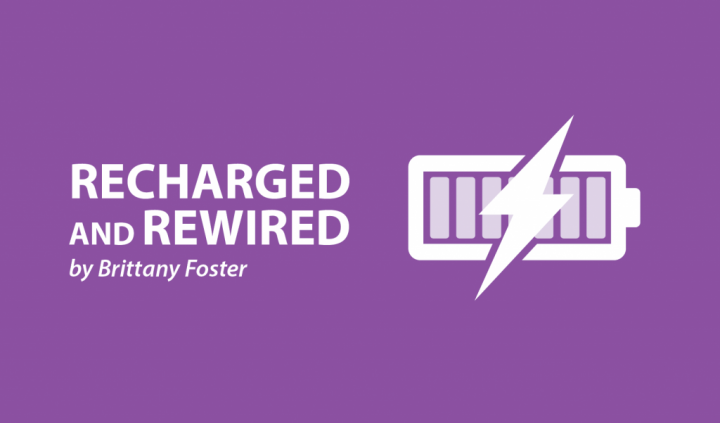I Will Not Apologize for Advocating for My Health

“Hi, this is Brittany calling again. I’m sorry to bother you, but did you get a chance to speak with the doctor?”
I have repeated that line numerous times while calling doctors’ offices. I have spent countless minutes on the phone with and sending emails to medical professionals saying, “I’m sorry.” When I stop to think about this, I wonder, “What am I apologizing for?”
I apologize when I feel like I’m being annoying or bothersome. What I have learned from having to advocate for myself, though, is that I don’t need to feel sorry. I don’t need to apologize for speaking up for my needs or asking for the help and care that I deserve. I am done saying “I’m sorry” when advocating for my health.
Speaking up for my needs has always been challenging. It became even more so at the age when I started taking a more active role at appointments. No longer was I able to rely solely on my mom for support with answering questions and telling the doctor about my symptoms. I had to learn how to describe what I was feeling and report symptoms that were uncomfortable to talk about, as well as learn the ins and outs of my medical conditions.
Interested in PH research? Check out our forums and join the conversation!
Speaking up does not come naturally to me. It took a lot of strength to overcome my fears. I spent countless hours working with my therapist on overcoming trauma related to medical procedures, hospitals, doctors, and surgeries. I fought through flashbacks and physical and emotional pain, and pushed myself in ways I never thought were possible. Finally, I was able to find my voice and start taking control of my healthcare. Because of all the work I have done to harness this voice, I will not apologize for it.
After conquering my fears and taking more control, I found a new challenge. It was hard for me to ask for what I needed. Asking for help has always been a struggle for me. Advocating for others, especially in my past job as a special educator, comes naturally. When it came time to ask that my own needs be met, however, I felt as if I couldn’t find the right words.
I’d always looked at my body as something “flawed” and “problematic.” I didn’t always treat it the right way, and a large part of me believed that was what I deserved. Finding the strength to take care of my body and my mind despite my medical conditions helped me become a better advocate. Finding that strength didn’t happen overnight. It took effort.
Hating my physical body and believing it was flawed kept me in a negative mindset. It prevented me from seeing what I truly had control over. When I started taking care of my own body and mind, it became more obvious that I deserved that same care from others. I no longer apologize to myself for taking care of my needs and my health. I will not apologize to a medical professional for asking for the help and care I know I am worthy of.
When reaching out to doctors — whether it’s to review results, ask for medications, or plan procedures — conversations are often preceded by “I’m sorry to bother you.” The truth is, nobody needs to feel sorry for speaking up and having a say in their medical care. When we find our voice, we should use it unapologetically.
***
Note: Pulmonary Hypertension News is strictly a news and information website about the disease. It does not provide medical advice, diagnosis, or treatment. This content is not intended to be a substitute for professional medical advice, diagnosis, or treatment. Always seek the advice of your physician or other qualified health provider with any questions you may have regarding a medical condition. Never disregard professional medical advice or delay in seeking it because of something you have read on this website. The opinions expressed in this column are not those of Pulmonary Hypertension News or its parent company, BioNews Services, and are intended to spark discussion about issues pertaining to pulmonary hypertension.








Comments
jill morton
Our lives are so similar..very active on sports teams, taught special education. Blindsided by a stroke in my early 20's, a diagnosis of congenital heart defect and Pulmonary Hypertension took 10 years because "I looked fine" and was dismissed as a nut for insisting something was wrong. I married, became pregnant and al hell broke loose.
My baby and I survived (barely) with 5 weeks in hospital and induced labour when she was still a preemie.
A yr later, I was having open heart.
I understand your need to be heard and the twisted mind game of "I gave them permission to do these tests, surgeries, meds, lines etc. I have PTSD when I hear a siren..I cant distinguishes between police, fire or ambulance. Just showing up for bloodwork makes me sweat.
I have no problem speaking up for myself but still find having a friend along to appts really helps.
Thank you for being our voice!
Brittany Foster
Wow, Jill. Thank you so much for your vulnerability and for reading my column. I completely understand the PTSD from hospitals and there was once a time where just seeing a doctor in scrubs, even if it was just on the elevator would send me into a complete panic attack when I was younger. Sirens still get my heart racing and I unfortunately have been in the back of an ambulance one too many times. It's something that we never truly will "get over" it just becomes more part of our life and our stories. I'm glad to be able to share mine and I'm glad it gave you strength and the courage to speak up about some of what you went through. It's my pleasure to be able to write things that others can relate to so strongly.
Carol Volckmann
Hi Brittney and Jill,
I don't think you have any idea how many people you touched with your courageous sharing of your feelings! The feelings of having to apologize, the feelings of panic hearing a siren, or just the sight of a doctor. Reaching out as you both did gave others permission to also be courageous and understand they too can speak about their vulnerabilities - they are not alone - it's okay and they too can be strong and be an advocate for themselves.
Thank you for your strength!
Carol
Brittany Foster
Thank you so much for your feedback Carol. I'm truly glad that you are able to find connection to my writing and the things I share. It has taken a lot for me to be as vulnerable and honest as I am. I think everyone deserves to hear it and have their voices heard.
Dori H
Another stellar piece, Brittany!
Even over-40 patients get the same feelings advocating for themselves. I can easily be assertive for a friend or family member; but when I need something for myself, I feel like a bother. But, I have learned that it is our responsibility to ensure that we are doing everything we can for our health, including making sure our health providers are doing their jobs.
Brittany Foster
Dori,
It certainly is our responsibility. We have to let others know that we are a force to be reckoned with! Thank you for reading!
Joyce Sandberg
Brittany
I almost lost my life for not insisting the Doctor see me ASAP. The nurse scheduled me 2 days after informing her that I was having trouble breathing. I should have gone to the ER instead.
2 days later the Dr. said " you are in coronary failure "
2 massive bi-lateral blood clots on my lungs along with oxygen saturation of 70 could have cost me my life. Luckily I am still here.
Futuristically, I would never accept that from a nurse.
Brittany Foster
Joyce,
I'm so sorry that you had this experience, especially for something that needed immediate attention like this. It should NOT have been brushed to 2 days after. Now, unfortunately you have learned your lesson in advocating for yourself the hard way. Many of us don't become advocates overnight. Usually, it takes something like this happening to realize that we have every right to SPEAK UP when we feel something is off and have ever right to take matters into our own hands if we don't feel it's getting done properly.